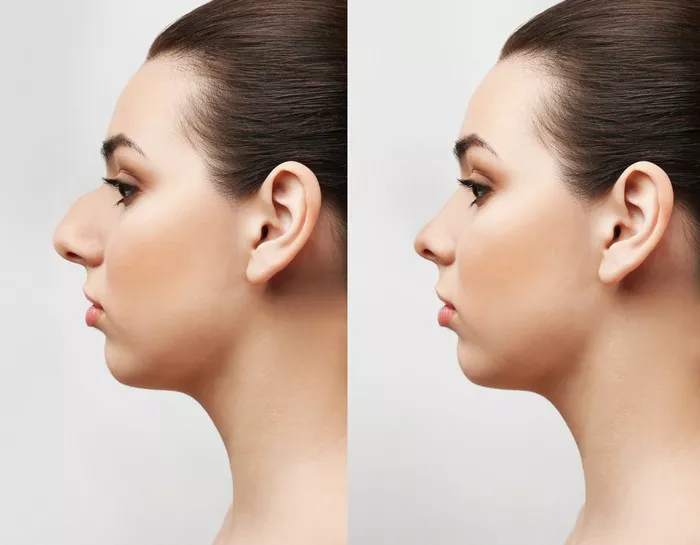Rhinoplasty is a surgical procedure that involves reshaping the nose for cosmetic or functional purposes. While it is generally a safe and effective procedure, it is important to understand the recovery process and potential complications. One common question that patients have after rhinoplasty is whether they can drink decaf coffee during their recovery. In this article, we will explore the impact of caffeine on recovery after rhinoplasty and whether decaf coffee is a safe option.
Understanding Rhinoplasty
Rhinoplasty is a surgical procedure that is typically performed under general anesthesia. During the procedure, the surgeon will make incisions to access the bones and cartilage of the nose. They will then reshape the nose to achieve the desired appearance or correct functional issues such as a deviated septum. The incisions are then closed, and the nose is typically splinted to support the new shape during the healing process.
After the procedure, patients will typically experience some discomfort, swelling, and bruising around the nose and eyes. It is important to follow the surgeon’s post-operative instructions carefully to ensure proper healing and minimize the risk of complications.
Caffeine and Recovery After Rhinoplasty
Caffeine is a stimulant that is found in many foods and beverages, including coffee, tea, soda, and chocolate. While caffeine can provide a temporary boost of energy and alertness, it can also have negative effects on the body, particularly during the recovery process after surgery.
One of the main concerns with caffeine after rhinoplasty is its impact on blood pressure. Caffeine can cause a temporary increase in blood pressure, which can lead to bleeding and other complications after surgery. Additionally, caffeine can interfere with the body’s natural healing processes, making it more difficult for tissues to repair and regenerate.
Decaf Coffee After Rhinoplasty
Decaf coffee is a popular alternative to regular coffee for those who want to reduce their caffeine intake. Decaf coffee is made by removing most of the caffeine from the coffee beans, typically using a chemical solvent or water process.
While decaf coffee contains significantly less caffeine than regular coffee, it is not completely caffeine-free. Depending on the brand and brewing method, decaf coffee can contain anywhere from 2 to 20 milligrams of caffeine per 8-ounce cup. This is compared to regular coffee, which typically contains 95 milligrams of caffeine per 8-ounce cup.
Is Decaf Coffee Safe After Rhinoplasty?
While decaf coffee contains less caffeine than regular coffee, it is still important to be cautious during the recovery process after rhinoplasty. While there is no definitive evidence linking decaf coffee to complications after rhinoplasty, it is generally recommended to avoid all forms of caffeine for at least the first week after surgery.
During the first week of recovery, it is important to follow your surgeon’s post-operative instructions carefully. This may include avoiding caffeine, alcohol, and other substances that can interfere with healing. After the first week, you can gradually reintroduce decaf coffee and other low-caffeine beverages into your diet, but it is still important to be mindful of your caffeine intake and listen to your body’s signals.
Other Tips for a Successful Recovery After Rhinoplasty
In addition to avoiding caffeine, there are several other steps you can take to promote healing and minimize the risk of complications after rhinoplasty. These include:
Keep your head elevated: Elevating your head while sleeping or resting can help reduce swelling and minimize the risk of bleeding.
Avoid blowing your nose: Blowing your nose can disrupt the healing tissues and lead to bleeding. Instead, use a saline nasal spray to keep your nasal passages moist.
Stay hydrated: Drinking plenty of water can help keep your nasal tissues hydrated and reduce the risk of dryness and irritation.
Avoid strenuous activity: Strenuous activity can increase blood flow to the nose and increase the risk of bleeding. Avoid exercise and other strenuous activities for at least two weeks after the procedure.
Follow your surgeon’s instructions: Your surgeon will provide specific post-operative instructions to help promote healing and minimize the risk of complications. Be sure to follow these instructions carefully.
Conclusion
Decaf coffee is a popular alternative to regular coffee for those who want to reduce their caffeine intake. While decaf coffee contains less caffeine than regular coffee, it is still important to be cautious during the recovery process after rhinoplasty. While there is no definitive evidence linking decaf coffee to complications after rhinoplasty, it is generally recommended to avoid all forms of caffeine for at least the first week after surgery. By following your surgeon’s post-operative instructions and taking steps to promote healing, you can minimize the risk of complications and enjoy a successful recovery after rhinoplasty.


